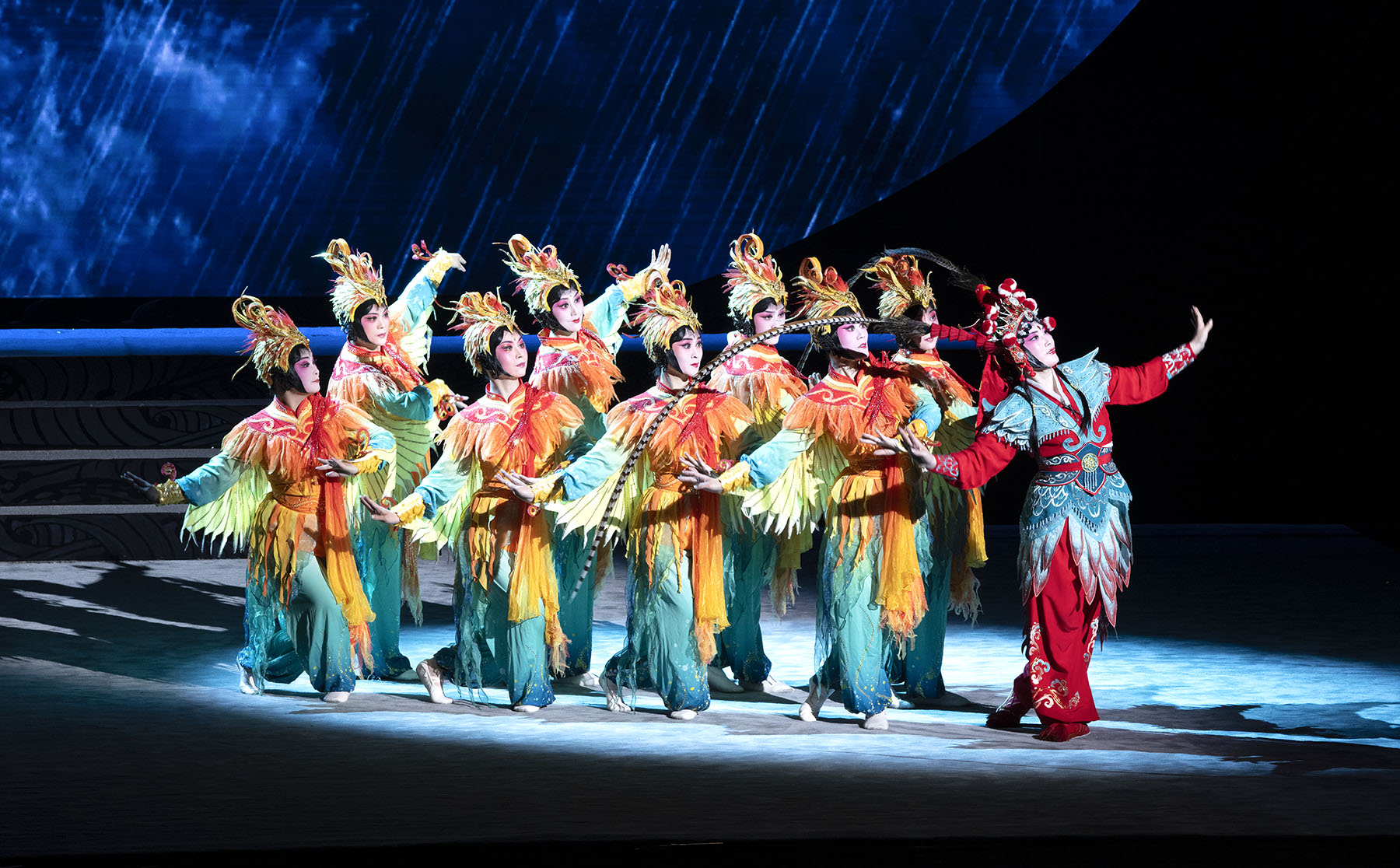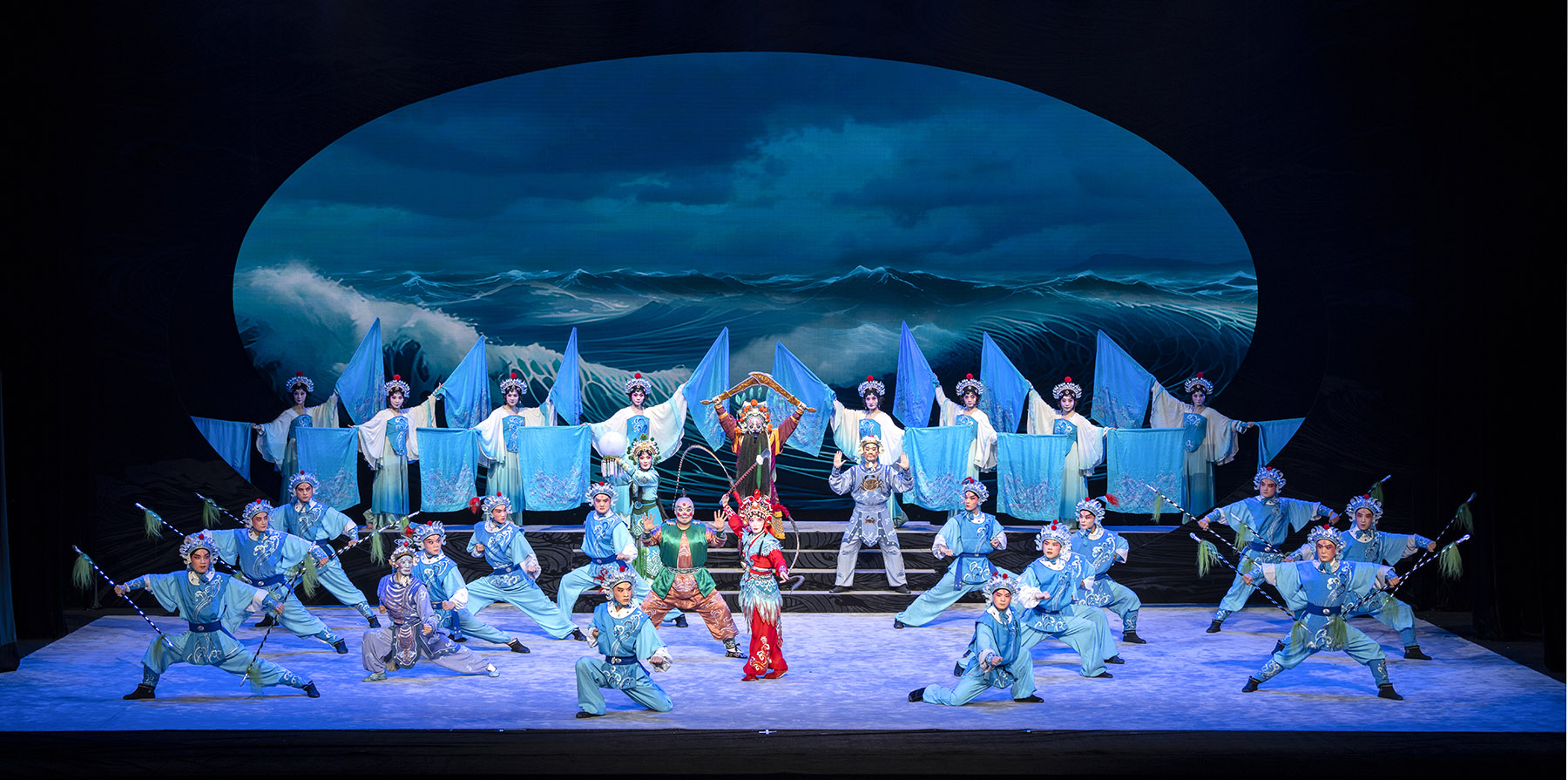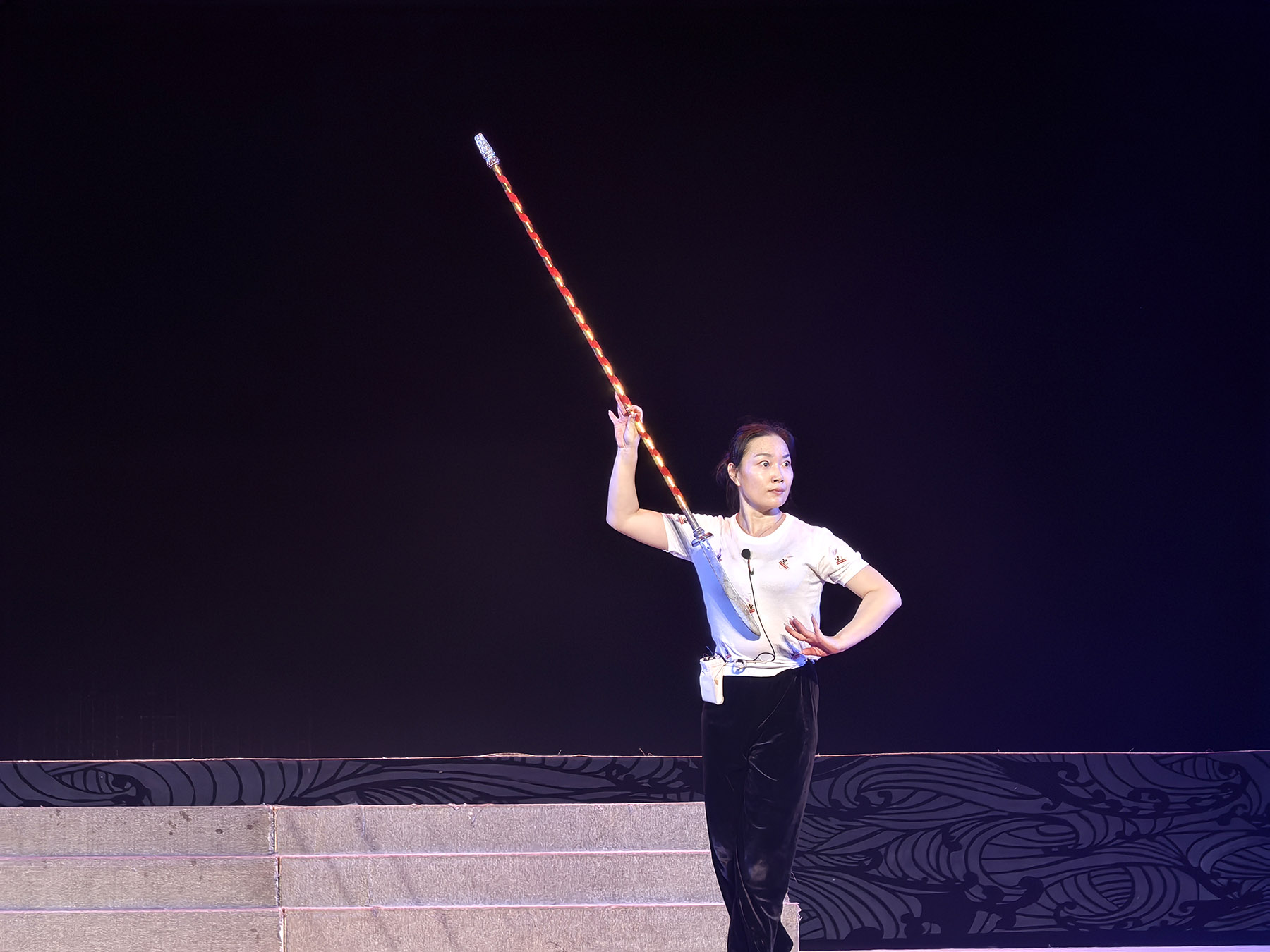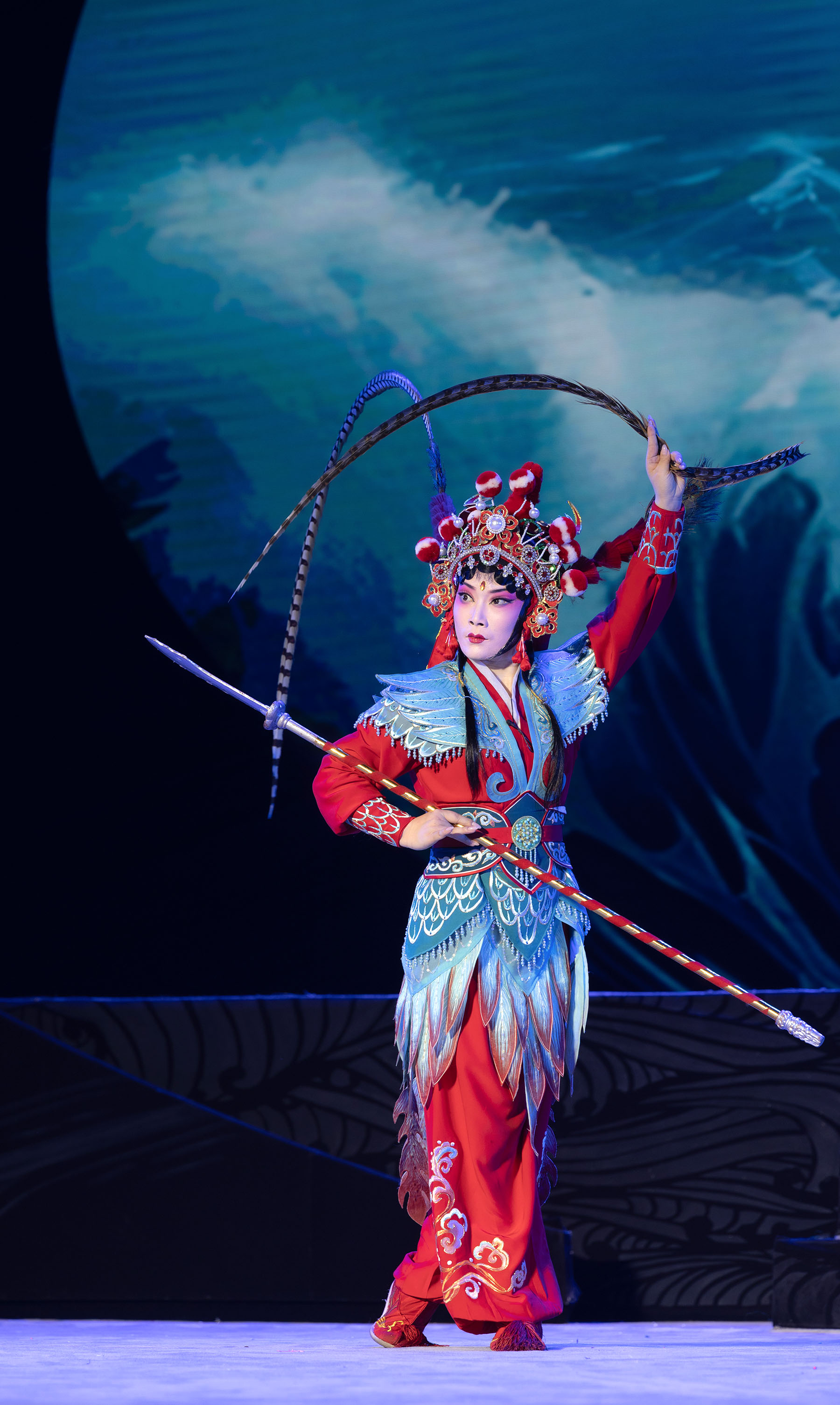Surrounded by veterans of the ancient art form Puju Opera, Liang Jing carries on a tradition that exhibits her multiple talents, which have been recognized by a prestigious award, Chen Nan reports.

Liang Jing was born in the historic city of Linfen, nestled in the heart of Shanxi province, a region rich in cultural traditions and a vibrant history. Linfen had long been a hub for Puju Opera, a local art form that flourished over 400 years. The city seemed to breathe with the powerful arias and intricate movements of this ancient art, its sound echoing through narrow alleyways and resonating in the hearts of its people.
From an early age, Liang was immersed in the world of Puju Opera. Her grandparents, passionate theater lovers, instilled in her a deep affection for the art. They frequently took her to the local theaters where she would sit wide-eyed and mesmerized by the dancers' skills and elegance, and the singers' powerful voices.
Her parents, too, were dedicated to the opera, and her aunt and uncle were performers in a local theater troupe, acting in the same plays her grandparents adored. Their home was always alive with the sound of rehearsals. Liang grew up surrounded by the music, emotions and soul of Puju Opera, absorbing its essence as if it were second nature.
By the time she was 12, Liang's passion for this ancient art was undeniable. Inspired by the performances she had seen and the stories she heard from her family, she decided to follow in their footsteps.
She enrolled in a local art school in Linfen, where she began formal training in Puju Opera. What started as a childhood fascination soon blossomed into a lifelong devotion. Liang's career progressed from small roles to more significant parts. Over the following two decades, she steadily earned the respect of both her peers and her audiences.
Her dedication was recognized in May when she received the prestigious China Plum Performance Award, one of the highest honors in traditional Chinese theater. The production that earned her the award was Jingwei Tian Hai (Jingwei Fills the Sea), a Puju Opera based on an ancient myth from Shan Hai Jing (Classic of Mountains and Seas), a revered text that chronicles various legends and geographical descriptions.

The story follows a beautiful young princess, beloved by her people for her intelligence, kindness and bravery, who tragically perishes in a sea accident. Her soul descends into the underworld, where she is reborn as Jingwei, a small, fiery bird with red feathers. Consumed by fury and a desire for vengeance, Jingwei resolves to fill the sea with stones to prevent the waves from claiming other lives. Every day, she carries tiny stones in her beak, dropping them into the vast ocean — an impossible task — but one she pursues with unwavering determination.
"My heart raced when the award was announced. In accepting this award, I dedicated it not only to the team behind the production but also to Jingwei, a symbol of unbreakable spirit and relentless resolve, and the ancient art form of Puju Opera," says Liang, 35, who portrayed Jingwei.
READ MORE: Setting the stage for a new approach
Puju Opera originated in Shanxi province, and is one of China's major regional operatic styles, though it is less internationally renowned than Peking Opera and Kunqu Opera. It is deeply influenced by other regional operas like Qinqiang Opera, one of the oldest forms of Chinese opera, particularly popular in northwestern China. Puju Opera music is dramatic and powerful, featuring high-pitched vocals, recitative-style dialogue, and traditional instruments, such as drums, string and wind.

Liang was trained to portray the role of daomadan, a female warrior character in Chinese opera akin to the heroic figures of Mulan. These roles require martial arts skills, singing, acting, and stylized movements, making them among the most physically demanding female roles in Chinese theater.
However, in her portrayal of Jingwei, Liang had to switch between various roles, each representing a different aspect of the character's emotional journey. For instance, when Jingwei seeks permission from her parents to investigate a coastal disaster, Liang performs in huadan style, embodying a lively, clever young woman. Later, as Jingwei bids a sorrowful farewell to her parents in a long, emotionally charged singing passage, Liang adopts the qingyi style, portraying a dignified, mature character.
Jingwei's transformation, from an innocent princess to a tragic heroine and finally, to a warrior spirit, is reflected in her four distinct personalities. The final scene, full of intense action, showcases her strength in the daomadan role, which demands martial arts prowess, a specialty of Liang's.

The production of Jingwei Fills the Sea received high praise, particularly from younger audiences captivated by its energy and intensity.
"They never imagined that traditional Chinese opera could be this thrilling," says Lin Weilin, the director of the Puju Opera production. "Ancient cultural arts are not outdated; they just require continual efforts in adapting them for modern audiences.
"Innovation must honor the essence of the art form," Lin continues, highlighting a particularly memorable scene in which Liang performs an acrobatic sequence of flips and kneeling slides while singing, followed by over 30 lines of vocals — an incredible display of her vocal and physical skills.
ALSO READ: Peking Opera diva is pitch perfect for role
Lin, who heads a Kunqu Opera troupe and won the Plum Performance Award in 1985, is also a veteran Kunqu Opera artist.
For Liang, the award is not only a personal triumph but a testament to the enduring power of traditional Chinese theater and the unyielding dedication of those who keep it alive, the director adds.
Ren Genxin, a veteran Puju Opera actress and former head of the Linfen Puju Opera Troupe, says that since the 1960s, the theater has long fostered young talent through the "Little Plum Blossom Puju Troupe".This troupe, established 20 years ago, presents many talented young performers, including Liang, to ensure the legacy of Puju Opera continues to thrive.
Contact the writer at chennan@chinadaily.com.cn


